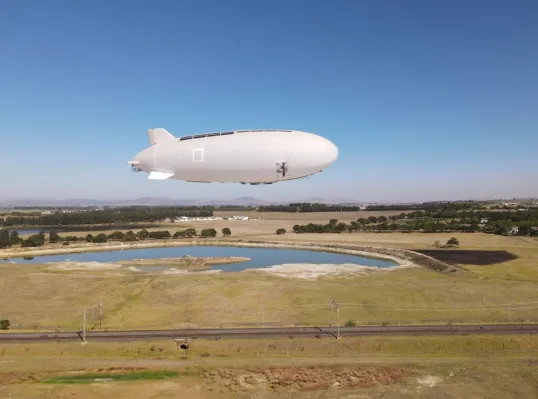Cloudline, a South African aerospace startup, has secured $6 million to advance its vision of global carbon emissions-free autonomous flight leadership.
The funding supports Cloudline’s mission to revolutionize aerospace with zero-emission autonomous flights on a global scale.
The seed round saw investment from Schmidt Futures, founded by former Google CEO Eric Schmidt and Wendy Schmidt.
Other pan-African funds like the Raba Partnership, Verod-Kepple Africa Ventures, 4Di, and other venture firms also invested in the seed round.
CEO Spencer Horne, a Harvard alum with a background in mechanical engineering, founded Cloudline six years ago.
His initial goal was creating a transport system that connects isolated communities to the global supply chain using lighter-than-air unscrewed aerial vehicles.
His commitment to harnessing transportation technology to overcome infrastructure challenges and enhance community outcomes is evident in the startup’s journey.
Cloudline’s autonomous airship is powered by helium gas for lift and sustained on solar power with a battery backup.
It boasts a range of over 400 km (250 miles) with a fully loaded payload of 40 kg (90 lbs.) and an operational time of 10 hours.
Read Also: TotalEnergies Launches Construction of Solar Plant in South Africa.
Cloudline’s Innovative Airship Technology
This innovative approach positions Cloudline as a game-changer in delivering real-time data capture to remote and challenging-to-reach locations.
The technology addresses critical needs in various applications, including mapping, monitoring, and public safety.
The extended range, endurance, and efficiency make Cloudline’s airships ideal for applications that were previously challenging to solve.
Moreover, environmental advantages emerge from carbon emissions-free airship cruise flights.
The use of helium gas, solar power, and battery backup not only reduces emissions but also significantly lowers operating costs.
Cloudline’s integrated software and hardware, particularly the autonomy developed for airships, also represent robust intellectual property.
This gives the startup a first-mover advantage in a relatively uncompetitive market.
Additionally, cloudline’s beachhead strategy involves developing solutions in Africa initially and leveraging these use cases to enter the global market.
Regulatory openness in Africa has enabled the startup to collaborate with local authorities.
The startup is actively working on expanding into neighboring countries before tackling global markets.
Furthermore, cloudline’s ability to combine visual, infrared, lidar, and other sensor data in a single flight creates a comprehensive data overlay.
This feature is particularly valuable for utilities with linear infrastructure, enabling enhanced maintenance and security.
The startup has garnered interest from customers, including government institutions and nature conservation organizations.
Moreover, its commercial operations have commenced in South Africa, with plans for regional expansion before entering global markets.
The recent funding round and projections for significant 2024 growth highlight Cloudline’s potential to revolutionize autonomous flight and address aerospace challenges.


